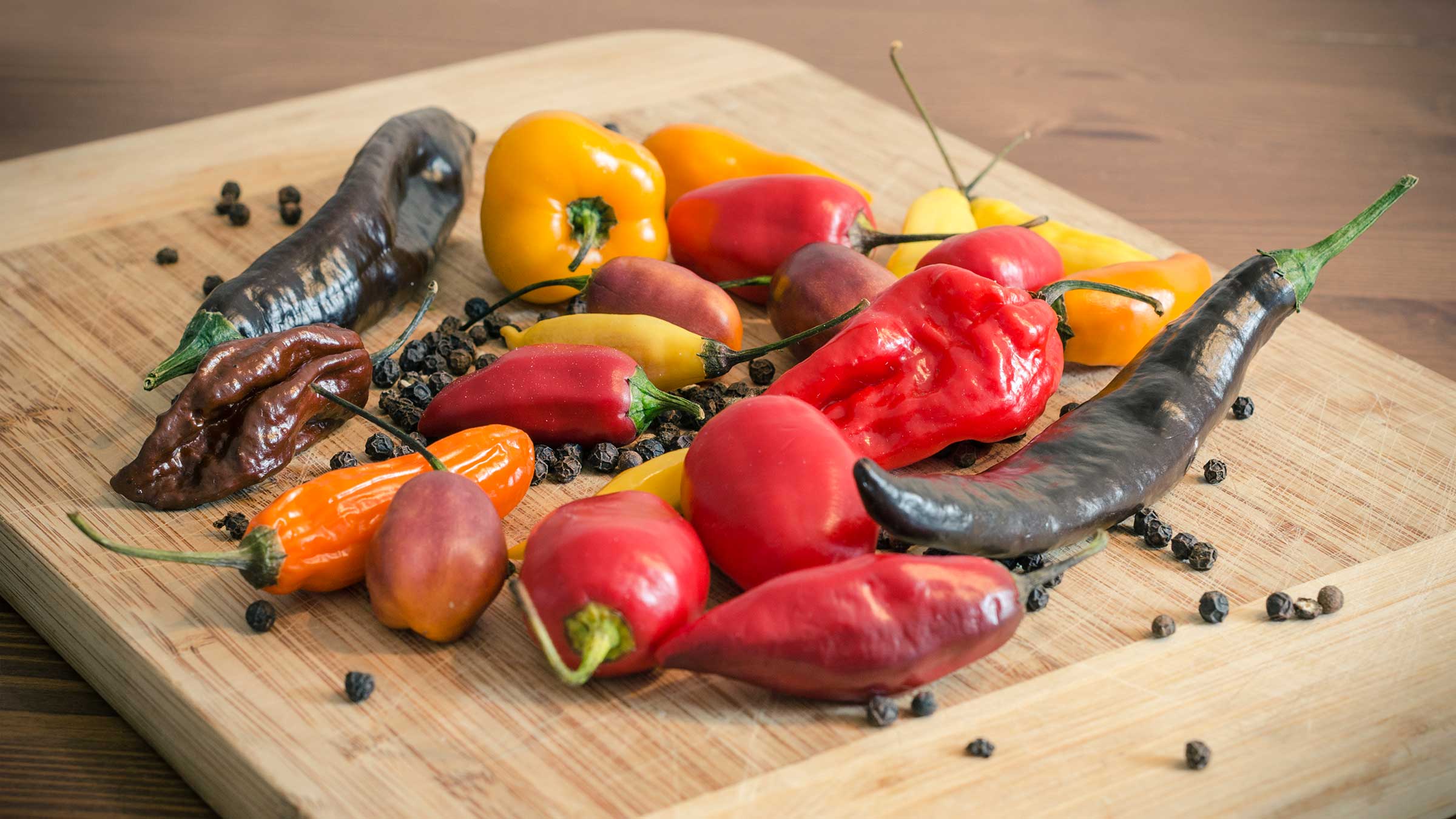
We’ve all seen it. Someone takes a bite of five-alarm chili or a blazing-hot wing and it begins: The face turns red, sweat builds up on the forehead, the eyes water. And we wait. How long will it be until they frantically reach for a glass of water or beg for some milk?
Many of us enjoy spicy foods and revel in the challenge of trying to stomach the hottest of hot sauces. But are these intense reactions good for us? Let’s break it down here with some helpful information.
Can eating ultra-spicy foods be dangerous?
By and large, the dose of spiciness is what matters. However, so does a person’s tolerance level. Some people are likely less able to tolerate spicy foods due to the number of a specific type of receptors in their nervous system. The fewer TRPV1 receptors a person has, the more heat they can handle. Further, a person can build up tolerance over time through repeated exposure.
In many cases, eating spicy foods actually can be beneficial. Studies have linked spicy foods to various health benefits, including lowering bad cholesterol, boosting gut health and increasing metabolism. The ingredient that makes foods spicy, capsaicin, is also used on the skin for pain management.
We run into problems when we consume a dose that’s above our normal tolerance level. For example, the 2023 “Paqui One Chip Challenge” dared people to eat a corn chip seasoned with Carolina reaper and Naga viper chili peppers, two of the hottest types available. There were reports of people throwing up and having trouble breathing, and one teenager died after eating a chip, leading to questions about whether these high-level spices could cause serious health problems.
So, when it comes to spicy food, it’s really about the dose: How spicy is the food you’re eating?
You could eat small amounts of a milder pepper and be fine, but most people won’t be able to tolerate larger amounts of a spicier pepper and will probably throw up. I, myself, love spicy food. But if it’s so spicy that you're crying, sweating and feel sick to your stomach, you're on the wrong side of your dose tolerance.
Why are peppers spicy?
My undergraduate major here at Ohio State was zoology, in the Department of Evolution, Ecology and Organism Biology, so it’s interesting to me why peppers like the Carolina reaper exist. They evolved because birds aren’t affected by the spiciness. Birds eat the peppers, swallowing the seeds whole, then drop them in their poop, so the plants spread. But when a cow, for example, tries to eat a pepper, it gets sick. So, these types of animals, which would destroy the seeds when chewing peppers, avoid them, leaving them for the birds to spread.
What does capsaicin do to the body when we eat spicy foods?
Well, there’s good taste associated with hot peppers, so to some point, they’re enjoyable.
But, in larger doses, the capsaicin in spicy foods binds to a pain receptor and tricks your brain into thinking the body is hot or experiencing a burn, so it tries to cool down, and you start to sweat. Mucus builds up in your mouth, your nose might run, your eyes might water. You might get a burning sensation in your mouth, esophagus and stomach, which can cause nausea, cramps, vomiting and diarrhea. In these higher doses, this isn’t a healthy experience, so these things need to be eaten in moderation.
The National Capital Poison Center reports that capsaicin can also lead to shortness of breath and allergic reactions and more serious complications like chest pain, heart palpitations, heart attack and stroke. And, if you can’t control vomiting, it could lead to critical damage to your esophagus.
Capsaicin also is an agent that's used in higher doses for riot control, in pepper sprays used to incapacitate people. They’re designed to make your eyes water so much that you can't see. They’re designed to make your nose run so much that you can't function. They’re designed to make you cough and wheeze. So, do you want to voluntarily make that happen?
Do spicy foods offer health benefits?
Research is divided on the benefits of spicy food. For example, there are some studies that show it increases your metabolism and may make your body feel full longer, but other studies say it may worsen stomach ulcers. So, it's kind of like red wine. There's a lot of literature that says a glass of red wine at night helps improve levels of good cholesterol. But if you drink a bottle of red wine at night, your blood pressure is going to go up, and you're going to gain weight. Our bodies aren’t meant to consume these things at such high doses.
What helps alleviate negative reactions to spicy foods?
To help alleviate the burning sensation associated with spicy foods, sip water or milk.
If you’re handling spice with capsaicin and get it in your eyes, wash your hands well with soap or an oily substance, then rinse the eyes with warm water for 15 minutes, followed by cool compresses. The National Capital Poison Center recommends treating exposed skin with warm water flushes, vegetable oil, diluted vinegar and water soaks mixed with a liquid antacid.
When should I seek medical attention for reactions to spicy foods?
- If nausea and vomiting are unmanageable and you can't keep anything down
- If diarrhea lasts for a while
- If you develop shortness of breath, wheezing or difficulty breathing
- If you have chest pain

When an emergency strikes, turn to The Ohio State University Wexner Medical Center’s full-service, state-of-the-art emergency departments
Our facilities are equipped to handle any medical emergency.
Find a location near you




